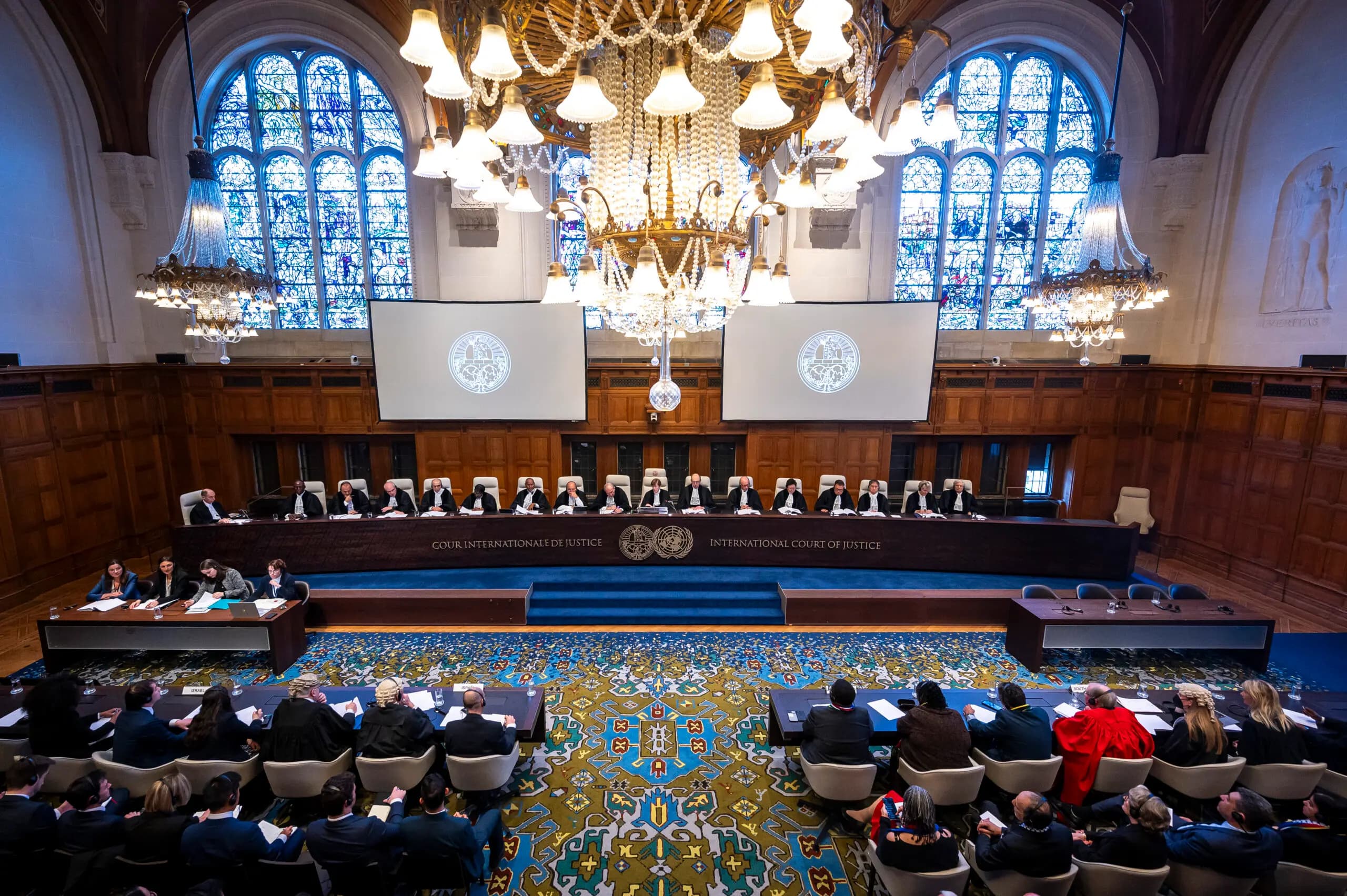We're loading the full news article for you. This includes the article content, images, author information, and related articles.
The United Nations' top court has issued a significant advisory opinion, compelling Israel to permit humanitarian aid into Gaza and cooperate with UN relief agencies, a ruling with potential implications for international accountability.

The International Court of Justice (ICJ) in The Hague on Wednesday, October 22, 2025, delivered a strong advisory opinion, stating that Israel must allow humanitarian aid into Gaza and that its restrictions over the past two years constitute a breach of international obligations. The court also found that Israel has a duty not to impede aid supply by UN organisations, including the United Nations Relief and Works Agency for Palestine Refugees in the Near East (UNRWA), which has faced an effective ban from the territory since January 2025.
The ruling comes after the UN General Assembly requested the court to determine Israel's legal obligations following the passage of Israeli laws that effectively banned UNRWA from operating in Gaza. The ICJ found that Israel had not provided adequate evidence to justify ending cooperation with UNRWA, rejecting claims that the organisation was not neutral under the Geneva Conventions. Instead, the court affirmed UNRWA's role as the "backbone of all humanitarian assistance in the area," requiring Israel to cooperate with the agency in good faith.
The advisory opinion is the latest development in a protracted conflict, with the humanitarian situation in Gaza consistently deteriorating. International food experts declared a famine in parts of Gaza in August 2025. Israel has maintained that it upholds its obligations under international law and has dismissed the ICJ's findings, with its Foreign Ministry stating a categorical rejection of the court's opinion.
The Israeli government has accused UNRWA of being "infested with terror activities" and claimed that Hamas operatives have infiltrated the organisation. However, the ICJ found these allegations unsubstantiated. This is not the first time the ICJ has issued advisory opinions on Israeli policies; two decades ago, it ruled against Israel's West Bank separation barrier, and last year, it declared Israel's presence in occupied Palestinian territories unlawful.
The ICJ's advisory opinion highlights Israel's obligations as an occupying power under the Geneva Conventions and its duties as a UN member state to cooperate with the international body. The court specifically noted that two Knesset laws passed in October 2024, which unilaterally ended cooperation with UNRWA in occupied territories, were unlawful as they prevented UNRWA from fulfilling its mandate to provide aid.
While advisory opinions from the ICJ are not legally binding in the same way as contentious case judgments, they carry significant moral and diplomatic weight. The treaty covering protections for UN personnel stipulates that disputes should be resolved through an ICJ advisory opinion, which "shall be accepted as decisive by the parties."
UN Secretary-General António Guterres welcomed the ruling, calling it "an important decision" and expressing hope that Israel would abide by it. Philippe Lazzarini, Commissioner-General of UNRWA, also welcomed the "unambiguous ruling," noting that UNRWA has 6,000 trucks of supplies awaiting entry, pre-positioned in Egypt and Jordan.
Palestinian representatives applauded the decision, with Hamas stating that the ruling confirms Israel's use of starvation as a weapon of war. Amnesty International Australia's spokesperson for the Occupied Palestinian Territory, Mohamed Duar, asserted that the ruling "reaffirms that Israel's brutal, military occupation of the Palestinian Territory is unlawful and confirms that Israel is using of starvation as a weapon of war in its genocide against two million Palestinian women, men and children."
The ruling is expected to intensify calls for Israel's suspension from the UN and could lead to demands for the UN Secretary-General to seek damages from Israel for breaching the immunities of UN staff and premises. The court also found that the Gaza Humanitarian Foundation, an aid agency set up by Israel, was not an adequate substitute for UNRWA and did not relieve Israel from the charge of using starvation as a method of warfare.
For Kenya, a nation that has previously expressed support for a two-state solution to the Israeli-Palestinian conflict, the ICJ's pronouncements carry weight. However, Kenya has also had a complex relationship with the ICJ, having rejected its jurisdiction and rulings in a maritime border dispute with Somalia in 2021. This history suggests a nuanced approach to international court decisions, balancing international legal principles with national interests.
Despite the ICJ's clear opinion, Israel has categorically rejected the findings, asserting that it "will not cooperate with an organization that is infested with terror activities." This stance raises questions about the practical implementation of the ICJ's advisory opinion and the mechanisms for enforcement, given that the court lacks direct enforcement powers.
The international community will be closely watching how Israel responds to the ICJ's advisory opinion and whether it will alter its policies regarding humanitarian aid to Gaza and cooperation with UNRWA. The UN Secretary-General's next steps, particularly concerning potential calls for damages, will also be a key area of focus. The ongoing humanitarian crisis in Gaza, coupled with the fragile ceasefire, underscores the urgency of these developments. Kenyan civil society and Muslim organizations have actively supported Palestinians, raising funds for aid, and calling on the Kenyan government to condemn atrocities.
Keep the conversation in one place—threads here stay linked to the story and in the forums.
Sign in to start a discussion
Start a conversation about this story and keep it linked here.
Other hot threads
E-sports and Gaming Community in Kenya
Active 9 months ago
The Role of Technology in Modern Agriculture (AgriTech)
Active 9 months ago
Popular Recreational Activities Across Counties
Active 9 months ago
Investing in Youth Sports Development Programs
Active 9 months ago